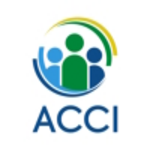IMPORTANT NOTICE: The date, time, and room assignment of YOUR presentation is SUBJECT TO CHANGE.
Proposal authors can use this tool to see where they have been placed in the program agenda for an Oral or Poster Session.
Scroll down to search by the Submitter or Author Name, by Date/Time, or by Keywords.
Confirm your place in the schedule by following the instructionss that were emailed to you. Each presentation must have a separate paid registration. Contact the ACCI office immedicately by email at admin@consumerinterests.org to report any conflict, all corrections to the details of the presentation (including author names and the order they are listed as this is how it will be in the final program), or if you have any questions. Please be sure to reference the session title(s), date(s), and time(s) when you contact us.
G2a A Multi-Generational, Mixed-Method Analysis of Parent Financial Socialization
Short Description
The purpose of this study is to better understand parent financial socialization processes and outcomes, with the ultimate goal of improving financial behaviors and financial wellbeing. With both qualitative and quantitative methodologies, we utilized reports from multiple generations from the same family (i.e., emerging adult, parent, and grandparent for qualitative; adolescent and parent for quantitative). From the preliminary qualitative results, we saw similar reports of parent-child financial discussion across all three generations of a family. By examining five families through a multi-generational lens, we gained a clearer picture of how financial socialization is not isolated to a parent-child dyad but flows continuously from generation to generation, with grandparents indirectly affecting the financial socialization (and subsequent financial outcomes) of their grandchildren. From the quantitative results, we conclude that Gudmunson and Danes’ family financial socialization theoretical model may not fully explain parent financial socialization processes and outcomes during adolescence. As researchers better understand parent financial socialization across generations, practitioners, educators, and policy makers will be better able to help parents improve this socialization, thus improving the financial behavior and wellbeing of young people.
Type of presentation
Accepted Oral Presentation
